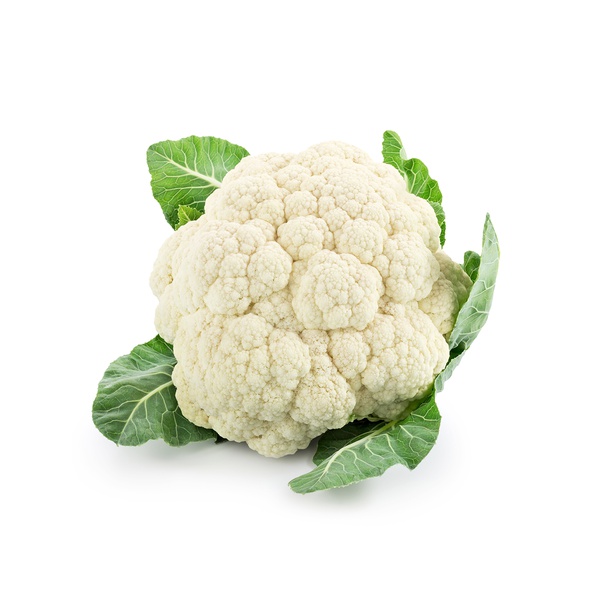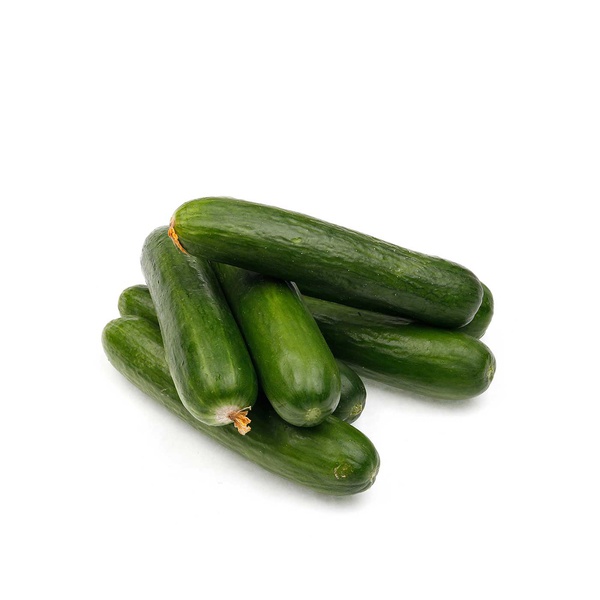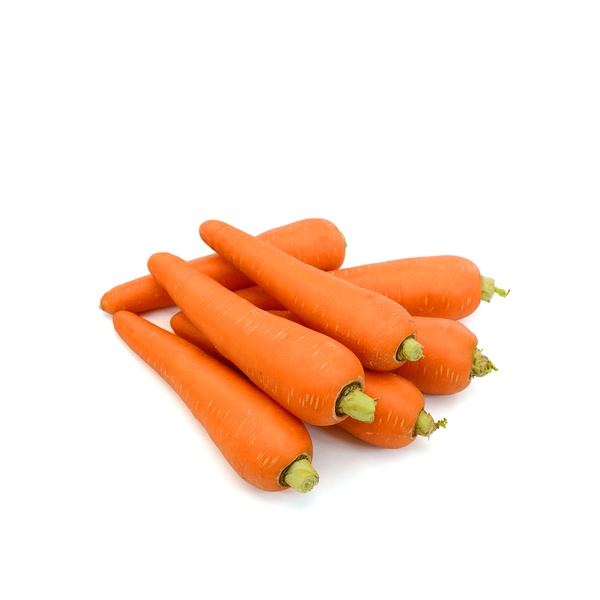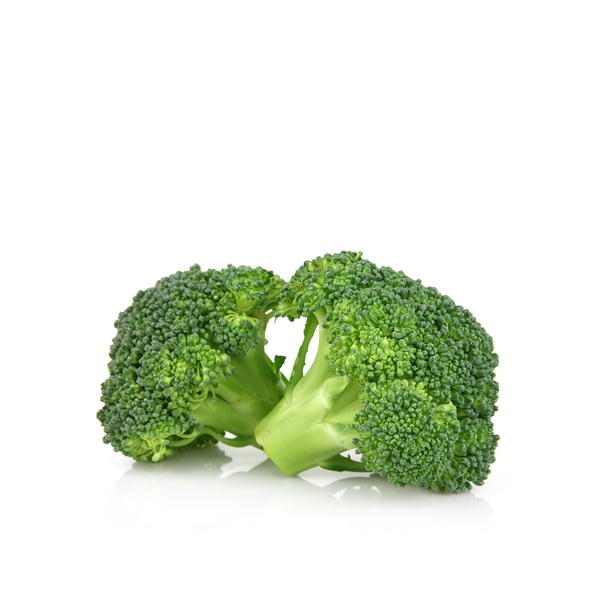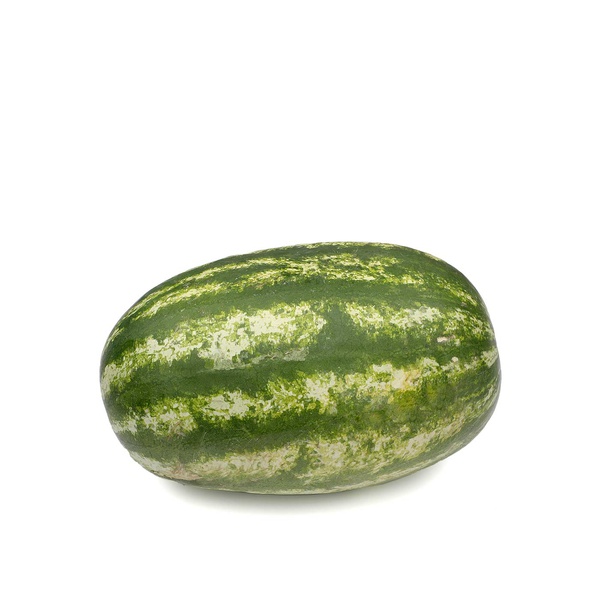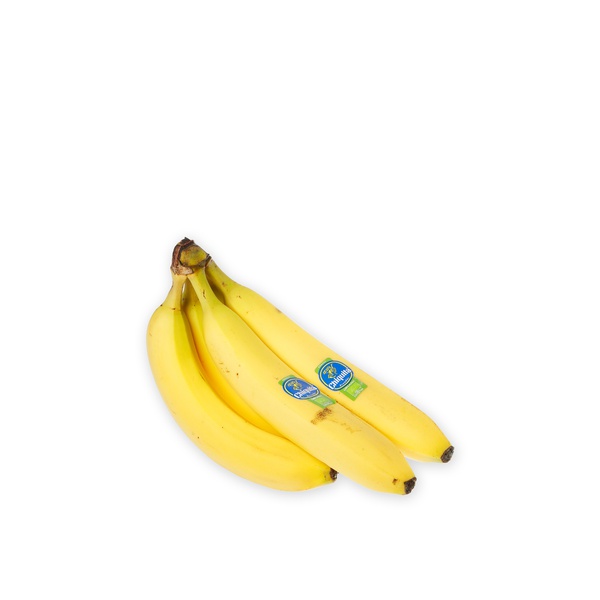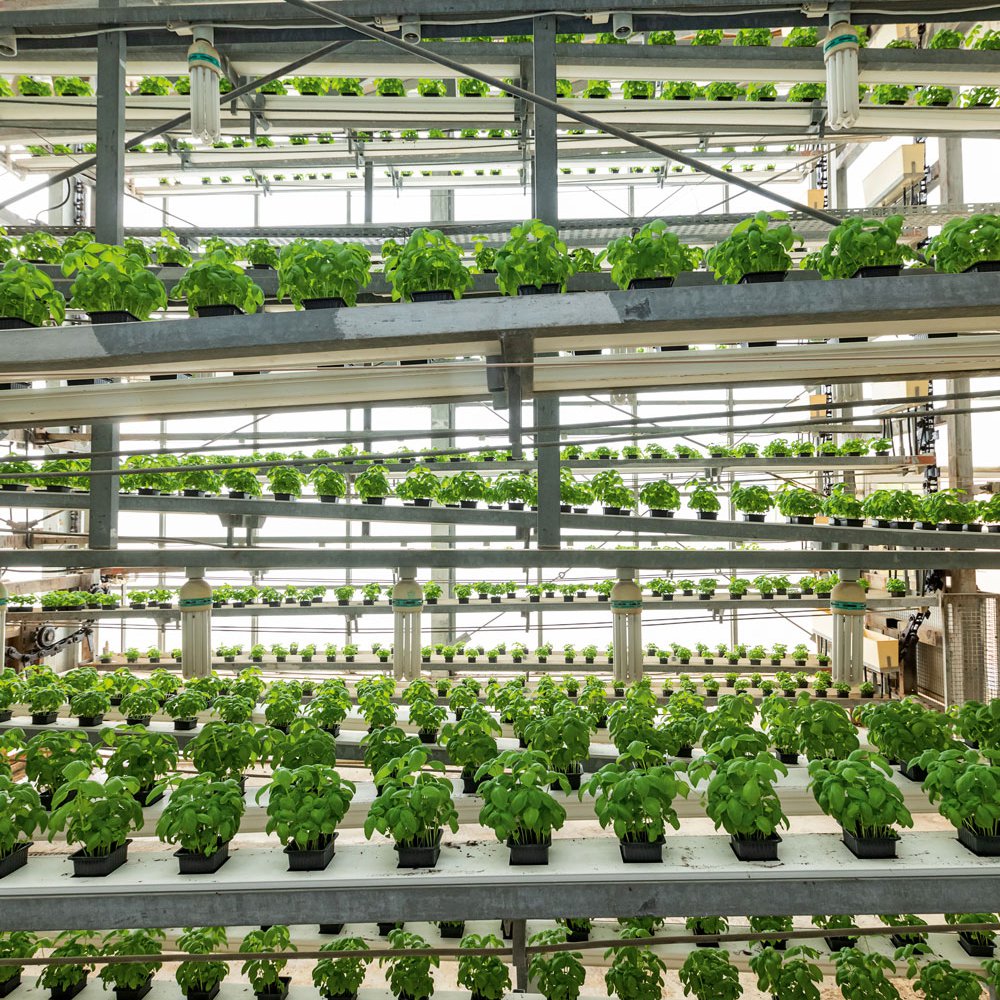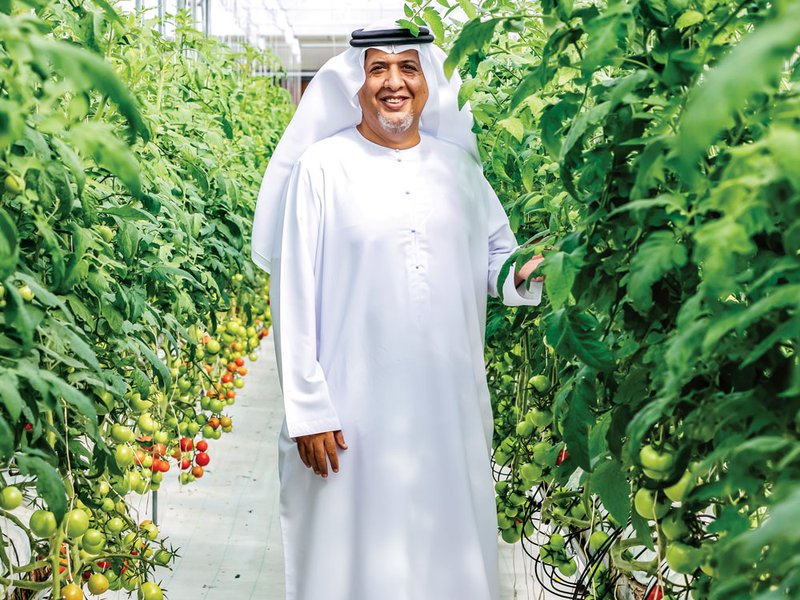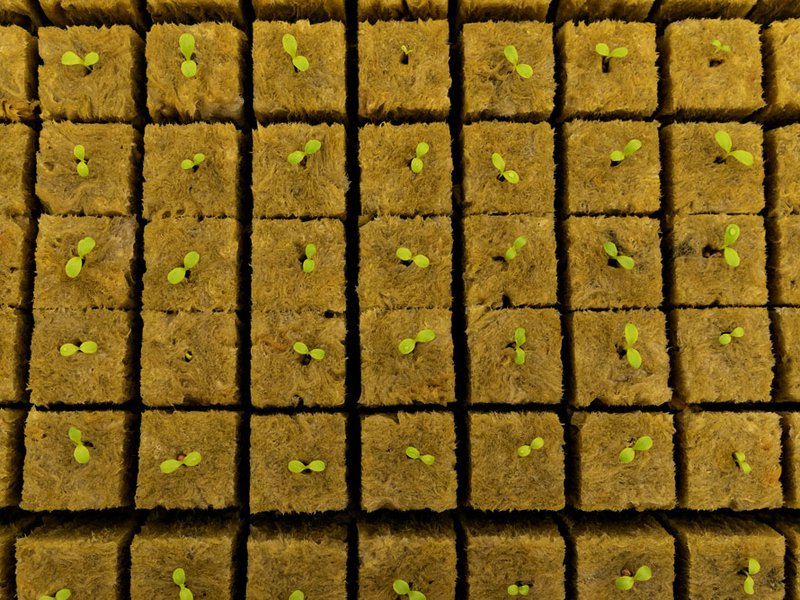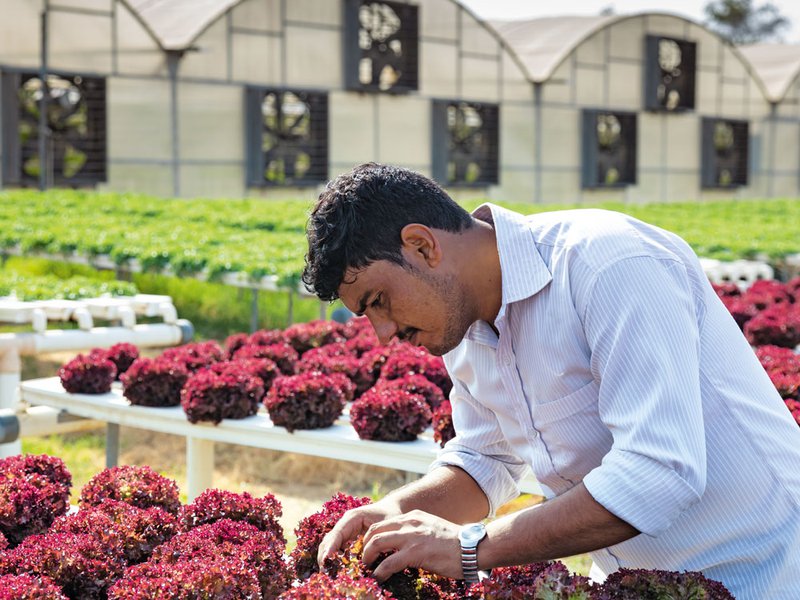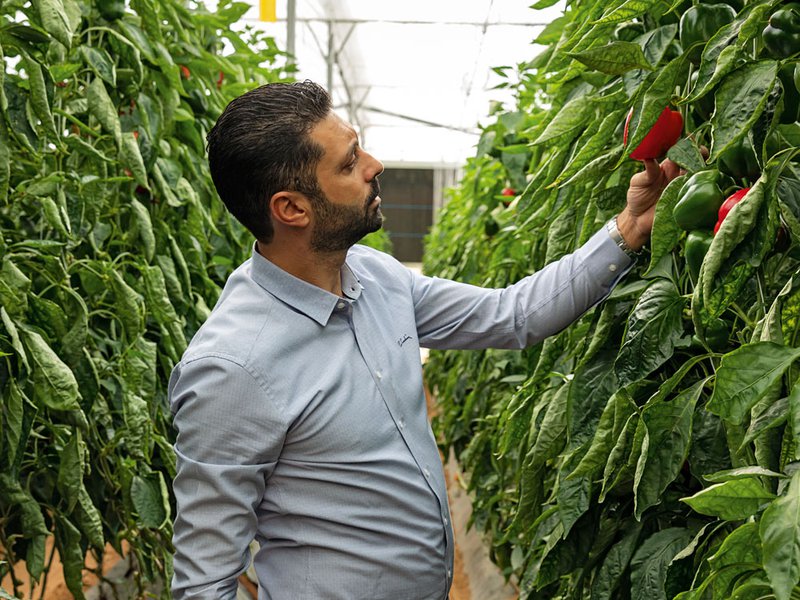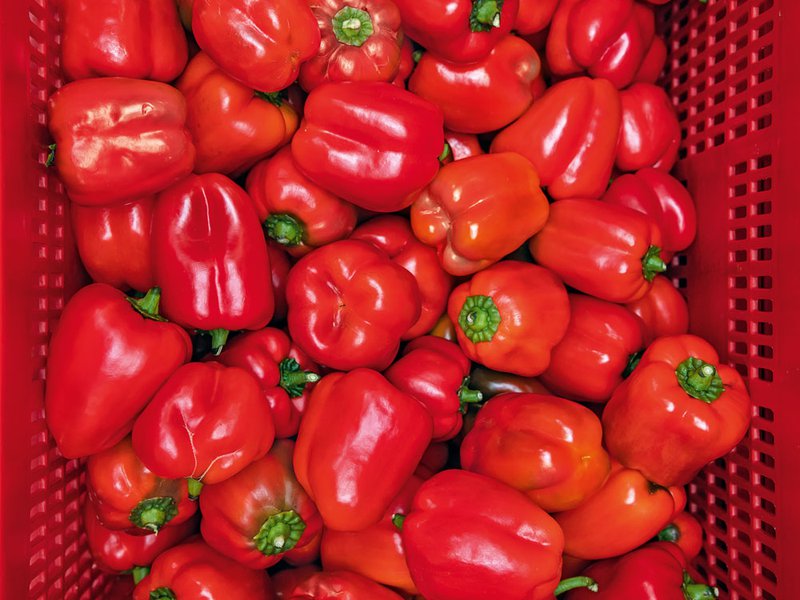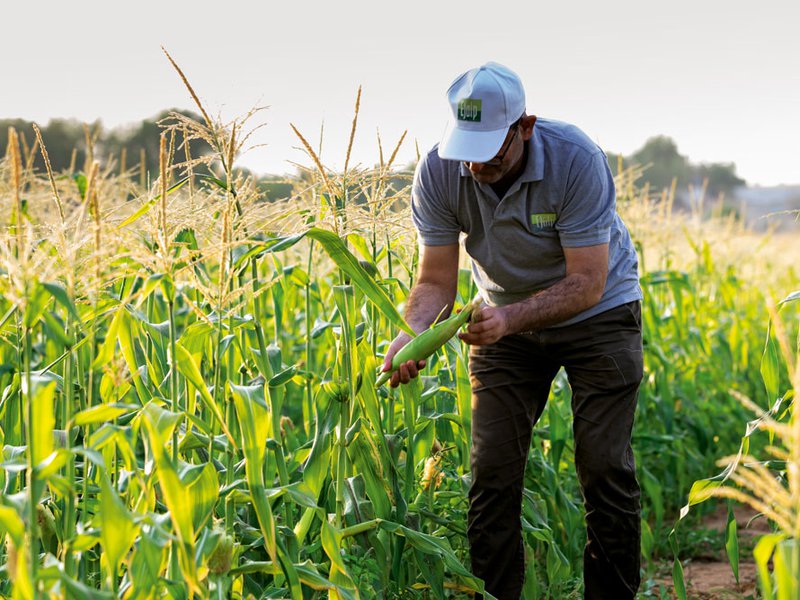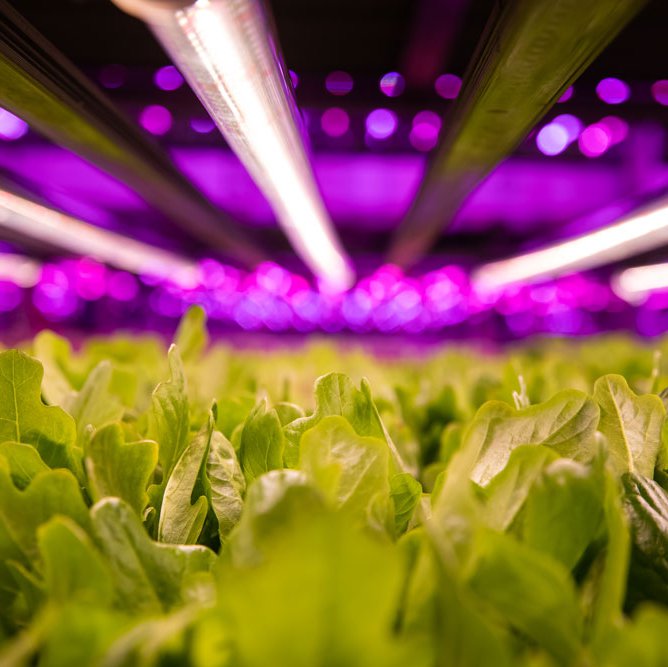Spinneys is dedicated to supporting the UAE’s mission to increase food security in the region. We work with several local producers who have invested in the latest technology
SILAL FARMS
Hasan Juma Al Zaabi never intended to be a farmer. But, it’s often impossible to avoid one’s heritage – his mother’s father and grandfather were farmers, too.
“I have been doing this for 25 years. It is my aim to prove that farmers in the UAE are capable of producing flavourful fruit and vegetables,” says Hasan.
Today, he has two farms in Abu Dhabi that are part of the Silal Cooperative. The first, set up in 1992, served as a sort of testing lab, where he honed the techniques he’d learned during his travels abroad. He soon graduated from open fields to greenhouses, which gave him the freedom to grow more delicate produce such as tomatoes and capsicums, as well as experiment with exotic fruit. A few years ago, Hasan decided to grow only organic produce on his land.
In 2013, Hasan set up a hydroponic farm, where he grows cucumbers and aubergines, which are available at Spinneys. This soil-free system of production not only saves water, but also allows him to produce larger volumes in a shorter span of time.
“It’s an expensive investment, but the returns are worth it in the long run. It allows me to grow greater quantities while protecting the crops more effectively against pests and diseases,” he explains.
EMIRATES HYDROPONIC FARMS (EHF)
Vibrant green and maroon lettuce grow on scaffolding in an open field during the cooler months of the year at one of EHF’s farms in Abu Dhabi. This is known as an ‘A-frame system.
“In winter we can grow outdoors, which is great because the abundant sunshine coupled with precisely measured nutrients results in big, fluffy heads of lettuce,” explains Niaz Ali, a grower at EHF.
In the summer, production moves inside to temperature-controlled greenhouses. Although this results in slightly smaller lettuce heads, the quality and taste remain unchanged.
Regardless of the season, the eight varieties of lettuce produced by EHF are grown in rock wool, which extends a plant’s shelf life because its roots are better able to absorb and retain nutrients.
Another space- and energy-saving indoor farming practice at EHF is rotating hydroponics. Rows of plants are rotated on a circular system every five minutes, which allows each row to get an equal amount of sunshine over the course of a day.
Spinneys sources aromatic pots of fresh basil, dill, mint, coriander and parsley from EHF.
ELITE AGRO
“Growing locally means we can pick our produce when they were perfectly ripe, thereby getting them from farm to table in 24 hours,” says Elite Agro’s farm manager and capsicum grower, Joseph Makhlouf.
Aubergines, capsicums, tomatoes and more, Spinneys sources several types of locally grown fruit and vegetables from the sprawling Abu Dhabi farm. Founded in 2010 and a member of Spinneys UAE Farmers’ Club since 2016, there are many things Elite Agro prides itself on – self-reliance, food security, ethical farming methods, the list goes on – but above all, the quality of produce they harvest.
“Consumers often associate quality with shape, size and appearance, but it’s not just about having a beautiful looking fruit and vegetables – quality goes beyond that. It’s about the taste, shelf life, and honestly, the products used to harvest the crops. Quality starts at the very beginning of the harvest cycle and quality is key throughout,” continues Makhlouf.
Aspiring to write a new green history among the sandy dunes of the UAE, the farm is also the only one of its kind in the region to harvest deliciously juicy, antioxidant-rich blueberries.
The berries are grown in a climate-controlled environment using the latest technology and once they’re at their prime, they are carefully picked and reach Spinneys’ shelves within 24 hours. It doesn’t get fresher (or tastier) than that.
EMIRATES FARM FOR AGRICULTURE AND LIVESTOCK PRODUCTION (EFALP)
Based in Abu Dhabi and with a number of farms dotted across the UAE, EFALP has more than a decade of experience in desert land farming – and EFALP is also where Spinneys sources its fresh super-sweet corn from.
“We harvest three to four times a week to ensure a steady supply of fresh corn to Spinneys,” says Hamzeh Abu Sini, who grows the corn at EFALP’s Al Ain farm.
Growing fresh corn in the middle of the desert may be thought of as a challenge, but the farm has spent years researching the efficient utilisation of scarce water sources.
“Al Ain is especially good for harvesting corn because the soil is red sand soil and we also have sweet water, not saltwater. Fresh groundwater and rich soil are key; if the soil is good you’re guaranteed to make good produce,” explains Abu Sini.
Quality food produced close to home is a motto EFALP prides itself on.
“Health is wealth and we try to use as little pesticides as possible to ensure the produce we offer our customers is as healthy as possible.”
